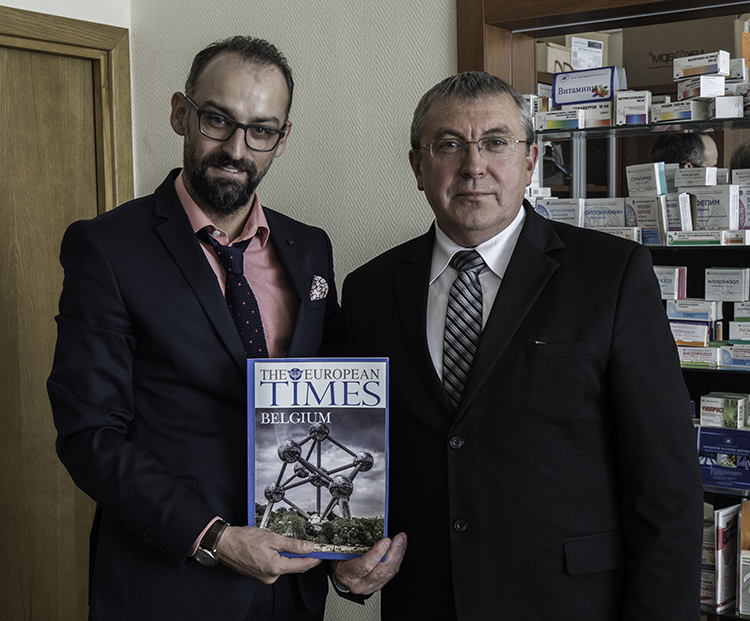
The pharmaceutical sector in Belarus is one of the country’s engines of production, growth and innovation. From 35 pharma entities operating in the country, 25 are privately owned, including ones with large shares of foreign capital. “There are 4.000 medicine units registered in Belarus, of which 1.500 are of local production. We are exporting products worth more than US$100 million. Regarding the industry share, this is about 29% of the whole production”, Viktor Shein, Deputy Director of the Department of Pharmaceutical Industry of the Ministry of Health, points out.
European Times: What are the latest developments and initiatives in your sector?
Viktor Shein: We plan to transfer to an entirely new scheme of development of the pharmaceutical industry. In the first stage, we are going to focus our attention on the high-tech manufacturing processes. Almost 30 investment projects have been completed, worth over US$220 million with state support, by order of the President. Completely brand new pharmaceutical platforms and new subjects of the economy were created, including ones with a high share of foreign capital. Annually, we are exploring up to 100 new medicines. Our primary goal is the creation of conditions for research and development, bringing highly needed pharmaceutical products to the market, predominantly the internal one.
We need to research and put into manufacture around 3.000 medicines more, both on the governmental platforms and the privately-owned ones. At this moment, the financial share of Belarusian medicines on the market is about 57%, and in packaging it is around 60-70%.
We are inviting all our foreign partners to cooperate with us to reach maximum “localisation” of the platforms of production in Belarus. Our export in pharma products is worth over US$100 million, and in terms of industry share, it is about 29% of the whole production. The President issued an order to increase this proportion up to 40% by 2020.
European Times: What are the incentives for pharma production in Belarus?
Viktor Shein: Our market is spanning over 200 million people because of our membership in the Eurasian Economic Union. We invite the leading international companies to invest in the several schemes of cooperation that we are preparing for them. The first steps would focus on the secondary packaging of medicines that are not produced in Belarus on our platform, which is ready and audited by these international companies.
In a later phase, we will move to primary packaging, and if our international partners recognise their interest, they will move to a full cycle production process in Belarus. Over 200 medicines have already passed the first two stages, and now we are implementing their full cycle of production here. Currently, there are about 1.300 registered pharmaceutical substances in Belarus, out of which we produce 82.
Belarus is a socially oriented country, providing citizens with inexpensive, yet high-quality medicines. At this moment, around 85% of the medicines we produce are in the price segment below US$5, and 36% are below US$1. We are cost-effective, and we have access to resources for our development, but we are welcoming foreign capital and know-how in pursuit of our mutual interest.




